French Marans Female Surplus near me
Price range: $59.00 through $63.00
This Marans Surplus can include any mix of the following. This product does not guarantee an assortment and can also be all the same breed.
French Marans Female Surplus near me
French Marans Female Surplus: The Ultimate Guide for Poultry Enthusiasts and Backyard Farmers
Introduction
French Marans Female Surplus near me. The French Marans Female Surplus offers a unique opportunity for poultry enthusiasts, backyard farmers, and homesteaders to access one of the most celebrated chicken breeds at an affordable price. Known for their signature dark chocolate-brown eggs and elegant appearance, French Marans are highly sought after for both egg production and their striking visual appeal. French Marans Female Surplus near me In this detailed SEO-optimized guide, we explore every aspect of the French Marans Female Surplus—highlighting its benefits, origins, features, care requirements, and how you can leverage this opportunity to enrich your flock and improve your self-sufficiency goals.
Table of Contents
- What is a French Marans Female Surplus?
- Origins and History of the French Marans Breed
- Characteristics of French Marans Hens
- Egg Production: What to Expect
- Appearance and Plumage
- Temperament and Behavior
- Housing and Coop Requirements
- Feeding and Nutrition
- Health and Common Issues
- Seasonal Care and Climate Adaptability
- Raising Chicks and Pullets
- Benefits of Buying Female Surplus Chickens
- French Marans Female Surplus vs. Hatchery Grade Birds
- Cost Efficiency and Budget Planning
- Integration with Existing Flocks
- Ethical Considerations and Welfare Standards
- Where to Buy Quality French Marans Female Surplus
- Summary and Final Thoughts
- SEO Optimization and Metadata
1. What is a French Marans Female Surplus?
A “female surplus” refers to excess pullets (young hens) that hatcheries sell at discounted prices, often due to overproduction or sexing errors. These birds are healthy, productive, and ready to join backyard flocks. For poultry keepers, this represents a cost-effective way to obtain high-quality French Marans layers.
2. Origins and History of the French Marans Breed
French Marans chickens hail from the port town of Marans in western France. The breed was developed in the 19th century through selective breeding of local birds with imported game fowl, resulting in a bird with exceptional egg-laying ability and meat quality.
The French standard includes feathered legs, which differentiate them from the British version. The breed was officially recognized in France in the early 1900s and is prized for:
- Exceptional dark brown eggs
- Hardiness and adaptability
- Attractive plumage and body type
3. Characteristics of French Marans Hens
- Size: Medium to large, weighing 5.5–7 lbs.
- Legs: Feathered (French standard)
- Combs: Single, bright red
- Color Varieties: Black Copper, Wheaten, Cuckoo, Blue Copper
- Hardy and disease-resistant
- Lifespan: 5–8 years under proper care
4. Egg Production: What to Expect
French Marans are celebrated for their dark, chocolate-colored eggs.
- Annual Egg Count: 150–200 eggs per hen
- Egg Color: Deep reddish-brown to chocolate, often speckled
- Egg Size: Medium to large
- Start Laying: Around 22–26 weeks
- Consistency: Moderate layers, ideal for quality over quantity
5. Appearance and Plumage
French Marans hens are visually striking:
- Black Copper Marans: Shiny black body with copper hackles
- Wheaten Marans: Creamy buff with darker accents
- Blue Copper Marans: Blue-gray feathers with red-gold highlights
Their feathered shanks and upright posture add to their elegance.
6. Temperament and Behavior
French Marans are calm, intelligent, and gentle:
- Friendly toward people and other chickens
- Not aggressive but assertive enough to avoid bullying
- Can tolerate confinement but prefer some free-ranging
- Easy to train and handle, especially when raised from chicks
7. Housing and Coop Requirements
Providing the right living conditions is crucial:
- Space: 4–5 square feet per hen in the coop; 8–10 square feet in the run
- Ventilation: Proper airflow to reduce moisture
- Roosts: 8–12 inches per bird
- Nesting Boxes: One box for every 3–4 hens
Ensure secure fencing to protect from predators.
8. Feeding and Nutrition
French Marans thrive on balanced diets:
- Starter Feed: 18–20% protein for chicks
- Grower Feed: 16–18% protein until laying age
- Layer Feed: With added calcium for strong eggshells
- Grit and Oyster Shells: Aid digestion and shell quality
- Fresh Greens and Grains: Supplements for variety
Free-range options help reduce feed costs and improve egg taste.
9. Health and Common Issues
French Marans are generally hardy, but precautions should be taken:
- Vaccinations: Marek’s and Newcastle disease
- Parasite Prevention: Dust baths and regular cleaning
- Watch for: Bumblefoot, mites, and respiratory infections
- Routine Care: Beak and nail trimming, regular weight checks
10. Seasonal Care and Climate Adaptability
- Cold Weather: Insulate coops and check water for freezing
- Hot Weather: Provide shade, cool water, and airflow
- Feather Molting: Occurs annually; egg production may slow
- Lighting: Maintain 14–16 hours of light in winter for laying
11. Raising Chicks and Pullets
Female surplus chicks are typically 8–16 weeks old:
- Acclimate gradually to your coop and existing birds
- Monitor closely for stress or illness
- Use chick-friendly feed and low perches
- Handle gently to encourage bonding
12. Benefits of Buying Female Surplus Chickens
- Cost-Effective: Lower prices than regular pullets
- Egg-Ready: Faster egg return on investment
- High-Quality Genetics: Still meet breed standards
- Less Risky: Sexed to avoid accidental roosters
13. French Marans Female Surplus vs. Hatchery Grade Birds
- Surplus hens often come from overproduction, not defects
- May vary slightly in color but retain core traits
- Hatchery grade may include less selective breeding
- Surplus birds are a middle ground between pet and show quality
14. Cost Efficiency and Budget Planning
- Initial Cost: $3–$7 per bird depending on age
- Feed Monthly: $10–$20 per bird
- Setup: Coop, feeders, waterers ($200–$400)
- Returns: Up to 200 eggs per year, valued at $50–$100 annually
Long-term, they offer excellent returns for small-scale poultry farmers.
15. Integration with Existing Flocks
- Quarantine for 2–4 weeks before adding to the main flock
- Introduce slowly via cage-in-coop method
- Watch for pecking order issues; provide multiple feeders
- French Marans tend to integrate smoothly when managed properly
16. Ethical Considerations and Welfare Standards
- Ensure your supplier follows NPIP certification
- Avoid sources that use poor sexing or inhumane culling practices
- Provide enriched environments for mental and physical health
- Regular health checks and humane treatment are essential
17. Where to Buy Quality French Marans Female Surplus
- Online Hatcheries: Meyer Hatchery, Cackle Hatchery, Hoover’s Hatchery
- Local Farms: Check regional poultry forums or farm listings
- Poultry Shows and Exchanges: Network with breeders
- Farm Supply Stores: Occasionally carry surplus chicks in spring
Always verify health guarantees and vaccination status.
18. Summary and Final Thoughts
The French Marans Female Surplus presents an affordable, ethical, and practical way to enjoy one of the poultry world’s most iconic breeds. With their stunning appearance, rich egg color, and gentle personality, these hens make excellent additions to any flock. Whether you’re a beginner or seasoned poultry keeper, this opportunity allows you to enhance egg production and flock diversity without breaking the bank.
| Sex | Female, Male |
|---|


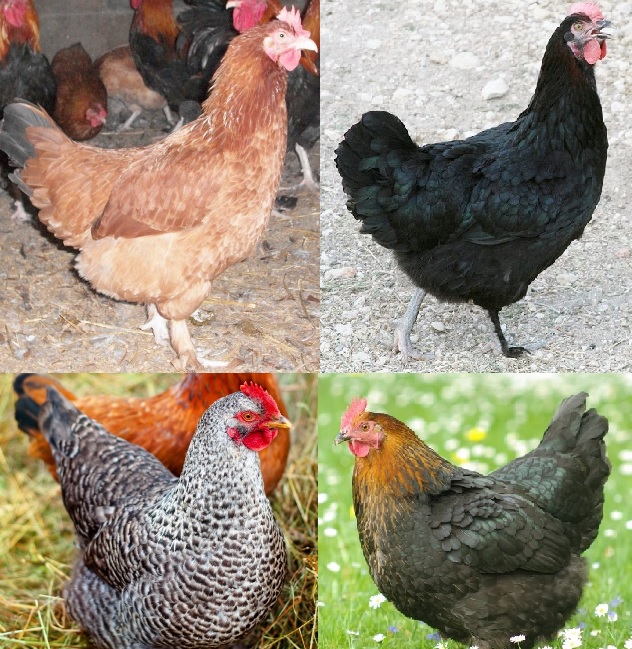
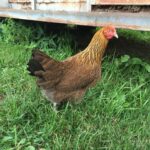

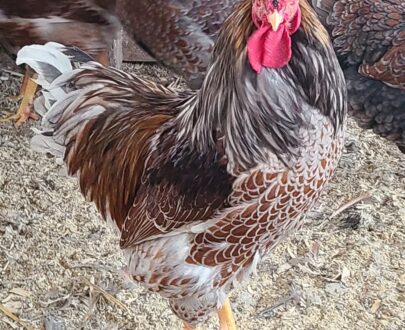



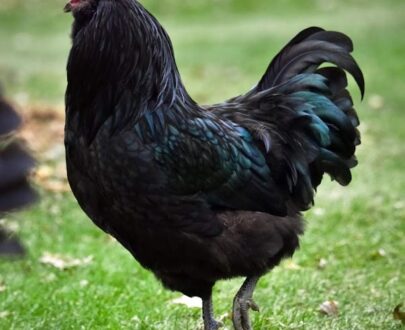
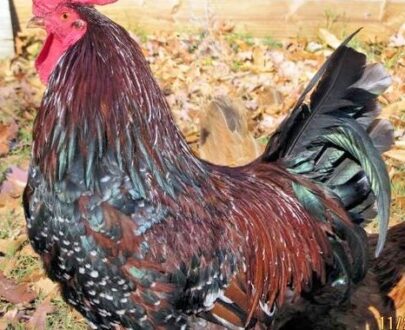





Reviews
There are no reviews yet.